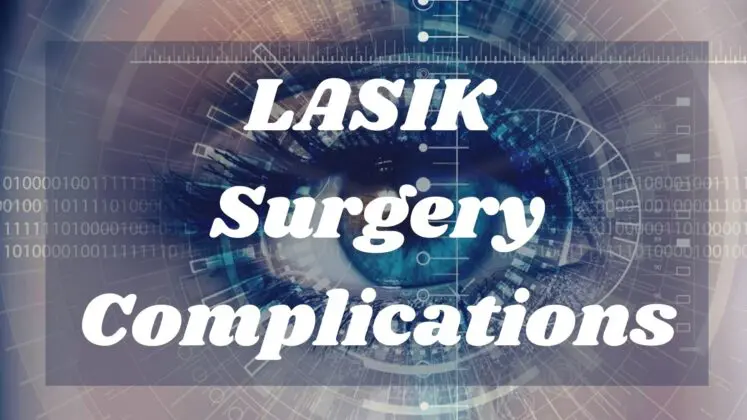
Contents
LASIK stands for Laser-Assisted Situ Keratomileuses. It is a surgery that a person can use to correct vision problems. It is also used as an alternative to eyeglasses and contact lenses. In this surgery, the doctors of eye specialists use a special type of cutting laser to make changes in the shape of your cornea. The main objective of having this surgery is to improve vision. But, You must know about the complications of LASIK Surgery, before getting it done.
When a person has normal vision, the corner of his eye bends the light precisely on the retina which is placed on the back of the eye. This refraction of light is responsible for providing a clear vision to the person. When a person has any eye problems, like nearsightedness (myopia), farsightedness (hyperopia), or astigmatism, the inclination of light is incorrect which results in blurred vision. This is where LASIK surgery comes into play.
Using glasses or contact lenses can help you correct your vision to a great extent. But, reshaping the cornea can also be a good alternative to correct the vision and get rid of eyeglasses and contact lenses.
There is a very rare chance that a person has to undergo certain complications of LASIK surgery. But yes, it is imperative to know about the side effects of the same before getting the surgery done.
Risks of LASIK surgery include:
This is one of the most prevalent risk factors that come along with LASIK surgery. The surgery is responsible for causing a temporary decrease in tear production. The eyes may feel unusually dry for the first six months or more after having the surgery. Dry eyes can also result in decreasing the quality of your vision. Eye specialists may recommend certain eyedrops to get rid of dry eyes. If the problem gets severe, you may need to visit your eyes specialist to go for another procedure and have special plugs in your tear ducts. The major function of these plugs will be to prevent the tears from drying on the surface of the eyes.
A person may face difficulty while seeing at night once the surgery is done. It may last for a few days or a few weeks. You might not be able to take the sensitivity of light in your eyes or have Double vision at times. Even when your eye specialist diagnosis of good visual results using standard testing conditions, your vision in dim light may be reduced later to a great extent.
This might happen due to the carelessness of the eye specialist. If he removes too little tissue from your eye you will never get the clearer vision that you must be hoping for. Under corrections are usually more common when people have certain eye problems, like nearsightedness. In this case, the person may need to have another LASIK procedure within a year. This may help to remove more tissues from the eye within a year.
There is also a possibility that the eye specialist removes too much tissue from your eyes. Under corrections can be rectified to an extent, but it is very difficult to fix the overcorrections.
It is a problem that can occur by the uneven removal of tissue from the eye. If it happens, it may require additional surgery, wearing eyeglasses, contact lens for clear vision.
It may also happen that if you fold the flap of your eye or remove it from the front during the surgery, it may cause complications, including infection and excessive water removal from the eye. There can be a normal growth of the outermost corneal tissue underneath the flap during the healing process.
Regression is the condition when your vision changes back towards your original prescription gradually. This happens quite rarely in people who undergo LASIK surgery.
Rarely, surgical complications can result in loss of vision. Some people also may not see as sharply or clearly as previously.
These are all the complications that come along with LASIK surgery. There are certain conditions that you must know which are responsible for increasing the risk factors at the time or after the surgery.
You must undergo a LASIK surgery only when you are physically fit enough to take the risk:
Here is a list of certain health conditions that can increase the risk of LASIK surgery or make the desired outcome less predictable for the patient.
Doctors may not recommend laser refractive surgery for you if you have certain conditions, including:
Your doctor may not advise you to have a LASIK surgery when you:
If you’re considering LASIK surgery, talk to your doctor about your questions and concerns. Your doctor will examine whether you’re a candidate for the method or other similar procedures.